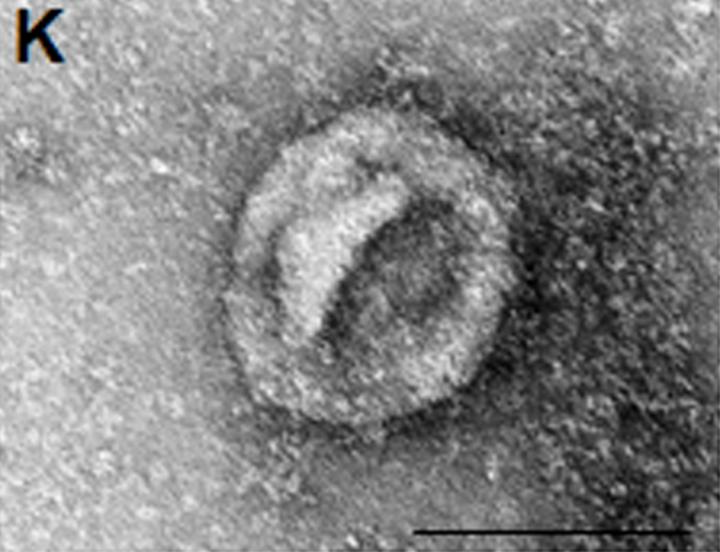
Credit: L. Gao et al., Science Translational Medicine (2020)
Ling Gao and colleagues have developed a strategy that uses exosomes – tiny membrane-bound sacs secreted by cells – to mimic the heart-regenerating effects of cardiac cell transplants, while potentially avoiding risks associated with whole-cell transplants. Their approach, which accelerated recovery from heart attack in pigs, could address issues with safety and effectiveness that have prevented whole-cell heart therapies from reaching clinical adoption. In recent years, researchers have explored the possibility of using transplants of heart cells grown from induced pluripotent stem cells to heal cardiac tissue in the aftermath of events such as heart attacks. However, transplanted heart cells often fail to engraft within the recipient and perish after a few days. Clinicians also remain worried that the cells that do engraft could cause severe health issues like arrythmia and even contribute to the formation of tumors in the long run. Instead of transplanting whole cells, Gao et al. tackled these issues by only administering exosomes, or tiny containers for proteins and DNA that are secreted by cells. Specifically, they isolated exosomes from three types of human heart cells – smooth muscle cells, cardiomyocytes, and endothelial cells – and injected them into the hearts of pigs after heart attack. Pigs that received the exosomes recovered more heart function and showed smaller scars compared with untreated animals and improved as well as pigs that received whole cell transplants. Gao et al. say that the acellular exosomes “could enable physicians to exploit the cardioprotective and reparative properties of hiPSC-derived cells while avoiding complexities associated with cell storage, transportation, and immune rejection.”
###
Media Contact
Science Press Package Team
[email protected]
Related Journal Article
http://dx.




